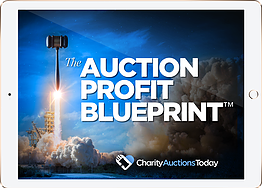DOWNLOAD The Auction Profit Blueprint
The 4 tools BIG organizations use every time to skyrocket auction profits!
The Step-By-Step Guide to stop leaving thousands on the table.
What is the best donor management software? CharityAuctionsToday helps you understand how to choose the best software option for your organization’s needs.

Choosing the right donor management software can be a game-changer for nonprofits. It can streamline operations, boost fundraising efforts, and foster stronger relationships with donors.
But with so many options available, how do you find the best one?
This guide aims to answer that question. We’ll explore what donor management software is and why it’s crucial for nonprofits.
We’ll delve into the key features to look for and discuss how this software can enhance your fundraising success.
Finally, we’ll review some of the top donor management software options on the market.
By the end, you’ll be equipped with the knowledge to make an informed decision that best suits your nonprofit’s needs.
Donor management software is a tool designed to help nonprofits organize and manage their donor relationships. It’s akin to a robust database, centralizing donor information for easy access and management.
This software does much more than just store contact information. It includes tools for tracking donations, managing communication, and analyzing donor behavior patterns.
Donor management software plays a pivotal role in fundraising by providing insights into donor engagement. These insights help nonprofits tailor their communication strategies for better results.
Here are some aspects to consider when exploring donor management software:
The benefits of using donor management software extend beyond fundraising. It can improve donor retention, streamline operations, and ultimately, increase nonprofit efficiency. These improvements enable organizations to focus more on fulfilling their missions.
Understanding the capabilities and advantages of donor management software is the first step in selecting a tool that aligns with your organizational goals.
Effective donor management is crucial for nonprofits aiming to sustain their missions. It directly influences the success of fundraising efforts and the ability to maintain strong donor relationships.
Nonprofits rely on donations to fund their programs. Therefore, understanding donor behavior is vital for engagement strategies. Donor management software offers insights into giving patterns, enabling tailored communication and personalized outreach.
Donor management plays a key role in donor retention. Retaining existing donors is more cost-effective than acquiring new ones. The software helps nonprofits nurture relationships by tracking communications and acknowledging contributions in a timely manner.
Moreover, efficient donor management contributes to better resource allocation. By automating administrative tasks, it allows staff to focus on strategic activities. This shift can significantly impact a nonprofit’s operational efficiency and long-term sustainability.
In today’s competitive fundraising environment, leveraging technology is essential for nonprofit success. A robust donor management system ensures organizations can adapt to the evolving landscape and enhance their mission-driven impact.
Selecting the best donor management software involves identifying key features that align with your nonprofit’s needs. With numerous options available, understanding these features can guide your decision-making process.
A comprehensive donor database is fundamental. It should store donor contact information, giving history, and engagement preferences. This data allows for personalized communication and improved donor relationships.
Another essential feature is robust reporting and analytics. The software should offer insights into fundraising performance, helping you identify trends and measure the success of campaigns.
Automation plays a pivotal role in efficiency. Look for software that automates administrative tasks like sending acknowledgments, managing recurring donations, and scheduling communications. This frees up time for strategic planning.
Integration capabilities are critical for seamless operation. Ensure the software can connect with other platforms such as email marketing tools, accounting systems, and social media networks.
Customizable dashboards are valuable for tailoring the user interface to specific roles. Different team members may require unique views of the data, depending on their responsibilities.
Security features cannot be overlooked. The software must protect sensitive donor information and comply with data protection regulations like GDPR. This maintains donor trust and organizational integrity.
Ease of use is another important consideration. A user-friendly interface facilitates adoption across the organization, minimizing training time and maximizing productivity.
Look for software that supports multiple donation methods. It should accommodate online giving, checks, and in-kind gifts, ensuring flexibility for donors.
Mobile accessibility is also advantageous. Being able to access donor data on the go enhances team responsiveness and donor engagement.
Finally, consider the scalability of the software. As your nonprofit grows, the system should accommodate increased data volume and additional users without compromising performance.
Summary of Key Features:
Choosing the right donor management software is crucial for nonprofit success. Each organization has unique needs, and understanding these various options can provide a significant advantage.
Bloomerang, DonorPerfect, Little Green Light, Salesforce Nonprofit Success Pack, and Blackbaud Raiser’s Edge NXT are considered top contenders in the nonprofit sector. Each offers distinct features that cater to different organizational requirements.
These platforms help manage donor relationships, drive fundraising campaigns, and streamline operations. Understanding their strengths and limitations can aid nonprofits in selecting a system that aligns with their mission and goals.
Why It’s Great: Bloomerang is widely praised for its user-friendly interface and focus on donor retention. It includes tools for tracking donor engagement, managing campaigns, and generating insightful reports. It’s particularly popular with small to medium-sized nonprofits.
Best For: Organizations prioritizing donor retention and engagement.
Key Features:
Why It’s Great: DonorPerfect offers a highly customizable platform with features for managing campaigns, tracking gifts, and communicating with donors. Its scalability makes it suitable for nonprofits of all sizes.
Best For: Growing nonprofits needing scalability and customization.
Key Features:
Why It’s Great: Built on the Salesforce platform, Nonprofit Cloud offers powerful donor management capabilities along with advanced analytics and automation. It’s ideal for organizations with complex needs.
Best For: Large nonprofits or those with tech-savvy teams.
Key Features:
Why It’s Great: Kindful is known for its clean design and seamless integrations with other fundraising tools like Mailchimp, QuickBooks, and PayPal. It focuses on creating a holistic view of donor relationships.
Best For: Nonprofits seeking integration-friendly solutions.
Key Features:
Why It’s Great: Neon CRM provides a complete suite of tools for donor management, event planning, and online fundraising. Its automation features save time, and its pricing makes it accessible to smaller organizations.
Best For: Nonprofits looking for an all-in-one platform.
Key Features:
Each of these software options excels in certain areas, so the “best” choice depends on your nonprofit’s specific needs, size, and budget. Take advantage of free trials and demos to find the perfect fit.
Beyond these top five options, other donor management software solutions stand out for specific needs. Little Green Light, for example, serves as an affordable all-in-one fundraising management tool.
Blackbaud Raiser’s Edge NXT is known for in-depth analytics and powerful data visualization. Classy, on the other hand, offers specialized tools for peer-to-peer fundraising and event management.
These additional options can fulfill niche requirements and complement specific nonprofit strategies. Exploring these alternatives allows organizations to find the best fit in a crowded market.
Ensuring that donor management software integrates well with other tools is key for seamless nonprofit operations. Compatibility can drive efficiency by connecting different aspects of a nonprofit’s work into one cohesive system.
Integration capabilities should be a major consideration during the selection process. Connecting with fundraising platforms, email marketing tools, and accounting software can greatly enhance overall productivity. It’s important for the software to support these linkages without complex setup processes.
A well-integrated system eliminates data silos and provides a unified view of donor activities. This holistic perspective supports better decision-making and improves donor engagement. As nonprofits increasingly rely on digital tools, software compatibility becomes crucial.
Here are some common integration aspects to consider:
Adopting software with robust APIs facilitates custom integrations and adapts to evolving needs. A focus on integration not only optimizes current operations but also supports future growth. It allows nonprofits to respond rapidly to technological advances and changing donor expectations.
Selecting donor management software involves understanding pricing models, which vary widely across platforms. Nonprofits must weigh the software’s features against their financial constraints to ensure value for money.
Some software offers a tiered pricing model, letting nonprofits choose a level that fits their size and needs. Others use a subscription-based model, charging monthly or annually for access to their full suite of tools. It’s essential to evaluate what each package includes and ensure no hidden fees exist.
Nonprofits should consider the total cost of ownership, which includes implementation fees, training, and ongoing support. While some initial costs may seem high, they must be balanced against long-term operational benefits and efficiency gains.
Budget forecasting for software should also factor in growth potential. An organization’s needs might change over time, requiring scalability in features and costs. Prioritizing software that grows with the nonprofit ensures lasting value and avoids frequent, costly transitions.
Security is a critical aspect of donor management software. Nonprofits handle sensitive donor information, which must be protected against breaches and unauthorized access. This ensures trust and maintains the integrity of donor relationships.
Compliance with data protection regulations, like GDPR, is another crucial factor. Nonprofits must ensure that their software providers adhere to these standards to safeguard donor data. This compliance helps avoid legal issues and potential penalties.
Robust security features, like encryption and multi-factor authentication, should be built into the software. These features help prevent unauthorized access and protect against data breaches. Such measures ensure that only authorized personnel can manage donor information.
Additionally, regular software updates and patches are vital for maintaining security. These updates address vulnerabilities and enhance the software’s resilience against cyber threats. Nonprofits should prioritize platforms that offer frequent updates to stay ahead of potential security risks.
Customer support is vital for users navigating new donor management software. Nonprofit staff may encounter challenges as they implement and manage these systems. Reliable support ensures issues are resolved quickly, minimizing disruptions.
Training resources enhance software usability. They empower staff to harness features effectively, improving efficiency and productivity. Good training helps teams optimize their use of the platform without requiring constant external assistance.
Both support and training contribute to a smoother onboarding process. When staff feels confident using the software, nonprofits can maximize its potential. This leads to better donor engagement and successful fundraising outcomes.
Selecting the best donor management software is crucial for any nonprofit’s success. The right software can streamline your operations and enhance donor engagement. Carefully consider your organization’s unique needs and goals.
Evaluate software options based on key features, integration capabilities, and user-friendly design. Keep your budget and long-term scalability in mind. Security and compliance are also critical in protecting sensitive donor information.
Ultimately, choosing software that aligns with your mission can transform your fundraising efforts. Take advantage of testimonials and case studies to guide your decision. With the right tools, your nonprofit can thrive and achieve greater impact.
DOWNLOAD The Auction Profit Blueprint
The 4 tools BIG organizations use every time to skyrocket auction profits!
The Step-By-Step Guide to stop leaving thousands on the table.

